Best Time To Visit
When to go
Botswana can be visited all year round. July to October is the dry season and the best time to view large herds as they gather at water sources, particularly in Chobe.
December to March is the green season and the country looks beautiful, with birding is at its best. It can be a little rainy but it's a good time to go to Botswana as prices are generally lower and the game viewing is still good. This is also the best time to visit the Makgadikgadi and the Kalahari as game migrates south from the Okavango Delta in search of water.
The floodwaters from Angola usually reach the Okavango in May and last until September.
Seasonal variations are reflected in prices. There are price reductions for staying several nights in associated lodges, and special offers during the green season.
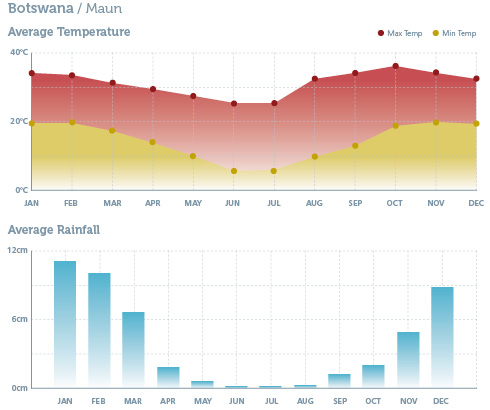
Getting there
Daily overnight flights on British Airways and Virgin Atlantic to Johannesburg connect with daily flights to and from Maun, Livingstone or Victoria Falls for the start or end of your safari.
Time Zone
GMT +2 hours
Visas
British citizens do not require a visa, but passports must be valid for six months from the date of travel and have two blank pages.
Health
There are no compulsory requirements. Botswana is a malarial area and precautions should be taken. Always consult your doctor at least six weeks before travel and refer to this useful NHS Website for details of recommended vaccinations for your destination.
Things To Do
- Explore the Okavango Delta by mokoro, the world’s only inland delta
- Game view by boat on the mighty Chobe River
- Visit Mma Ramotswe’s home town of Gaborone
- Learn how to survive in the Kalahari Desert
- Search for ancient stone-age tools on the Makgadikgadi Saltpans
- Search for aardvark, bat-eared fox and bushbaby on a night game drive
Landlocked Botswana, in the heart of southern Africa, offers spectacular game viewing in vast untouched wilderness areas. The Botswana safari adventure is unique, with opportunities to see a host of animals and birds, including most of the big five, undisturbed in their natural habitat.
Wildlife and tourism are key to Botswana’s economy; nearly one sixth of the country is dedicated to permanent, well-managed private (unfenced) reserves and national parks, the most famous of these being the Moremi Game Reserve, at the centre of the Okavango Delta. Tourism employs about 45% of all the people who live in northern Botswana.
FAQ
Candice Buchan has travelled extensively throughout Botswana and says she loves the fun of a tented mobile safari just as much as the top-class lodges that are the hallmark of this premier safari destination. Our Frequently Asked Questions sections are intended to help you decide if a particular destination is what you are looking for.
What are the safari lodges and camps like in Botswana?
Camps operate to a very high standard, with comfortable beds, spacious rooms, lighting, private facilities (most bathrooms are en suite), hot and cold running water, excellent rangers and good food. Your choice of camp will depend on the mix of activities you want, the season, the size and style of camp you prefer and the degree of luxury you'd like. Mobile camping safaris, where your camp moves with you, are also worth thinking about as you really do feel you get right to the heart of the bush. These can be semi-participatory where you help put up your own tent and there are shared loos, right the way up to silver service, fine bed linens and en suites.
Is the food pretty basic on safari?
You'd be amazed at the quality of food that can be cooked even when deep out in the bush. You'll eat very well wherever you choose to stay. Fresh ingredients are flown in and trained chefs prepare meals from scratch in the lodge’s kitchens. Food is mostly European, with African influence, and some lodges will cook local dishes in addition to the main dishes. For the most part it is good wholesome food which keeps fresh ‘on the road’ and your safari experience doesn’t have to be cut short.
Life on safari follows a similar pattern at most camps. You’re up at dawn and are served a hot drink and a snack before setting off on the early morning game drive. Once back at camp you’ll find a delicious brunch waiting. This is usually a traditional cooked English breakfast with lots of other options like breads and fruits, as well as cheeses and cold meats. A high tea is served before the late afternoon game drive, and during the evening activity, drinks and snacks are offered – you never get a chance to get hungry on safari! A three-course evening meal back at the lodge brings the day to a close, and this may be served around the campfire or in the dining room, or mess tent if you are on a mobile. Dinner is always a fun and sociable event where people sit around a central table and share safari stories.
Can the lodges cope with special dietary requirements?
Despite their remote settings, the lodges aim to cater for everyone’s needs, so if you have specific dietary requirements, allergies or medical conditions, it’s best to give us this full information, no matter how small, in advance. The lodges really pride themselves on getting every little detail right.
What are the different ways of going on safari in Botswana?
There are a variety of ways to go on safari in Botswana. We can put together a tailor-made safari for you, making use of Botswana's incredible choice of superb safari camps and lodges, taking in different types of habitat and activities, depending on your own interests and budget. You would usually fly between camps by small plane.
Alternatively, consider one of the small group mobiles which usually have no more than eight people. Some have set-departure dates, and others can be run as private safari if there are enough of you to make up your own group. This is a great option for extended families. You can also explore Botswana on foot, canoe, mokoro or on horseback. Ask us more information on these specialist trips.
See our selection of Botswana holidays and tours.
Can my children come with us on a mobile safari?
Children are welcome but there are age restrictions at some camps – we’ve added details on a camp-by-camp basis in the website accommodation sections. &Beyond camps (Nxabega and Sandibe) offer inventive children’s programmes, the Kwando camps (Kwara, Lagoon and Labala) have a specialist children’s guide, which can add enormously to your child’s enjoyment, and some camps have family units (Chitabe, Duma Tau, Jao, Vumbura Plains).
For mobile safaris children must be 12 or over. However if you book a private departure, younger children will be considered. Mobile safaris do entail a fair amount of travelling though and younger children need to be able to cope and enjoy the adventure as they may find themselves out of their comfort zone. Only a parent will be able to make the call if this is reasonable for their children.
Can I easily add on extra pre or post safari activities?
The Victoria Falls are easily to get to, giving you a lovely relaxed end to a safari and there are lots of other things to do in the area as well. The cosmopolitan city of Cape Town, whilst it’s a bit of a contrast, is a perfect choice for some superbly indulgent wining and dining, dramatic scenery and cultural activities. For beach lovers, Mauritius and Mozambique are ideal and both are reasonably accessible. The Seychelles works too, bit only on certain days of the week.
Shelley Phillips
Travel Specialist
Read also
Looking for inspiration?
You'll find expert travel guides, holiday ideas and insider tips now on the Rainbow blog
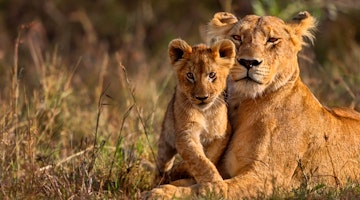
Top 5 First Time Safari Destinations
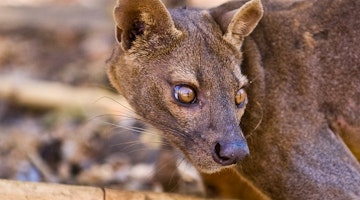
10 Strange Animals and Where to Go to See them


Salar De Uyuni - The World's Largest Salt Flat

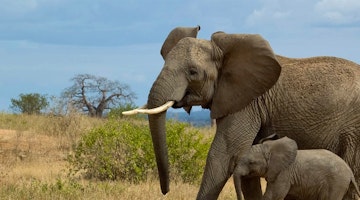
Top five South Africa Safari lodges
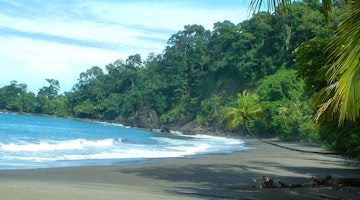
Sustainable Tourism In Corcovado National Park, Costa Rica

Why Choose Us?
Passionate travel experts
- We've been leading wildlife travel since our first South Africa tours over 25 years ago
- Our Travel Specialists have lived in their specialist area for years
- We work with local guides to immerse you deeper in our diverse range of experiences
Personal & tailor-made
- You'll speak to your own expert who'll share their first-hand knowledge
- We'll make your itinerary seamless with 24/7 emergency contact available
- Your Travel Specialist will listen to ensure you have the best chance of seeing the wildlife you love
Responsible by nature
- We take care to actively contribute to the conservation of environments we visit
- For select countries, we make a charitable donation on your behalf when you make your booking
- We've partnered with conservation experts and NGOs to curate responsible tours
For the latest travel advice from the Foreign, Commonwealth and Development Office check www.gov.uk/travelaware




